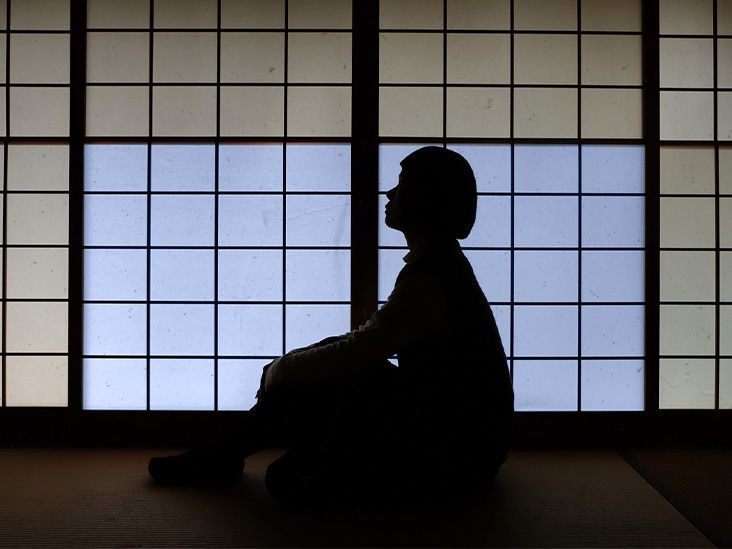Untreated bipolar disorder: Signs, effects, and more - Medical News Today

Untreated bipolar disorder can become severe, and may have a range of effects on a person's work, relationships, mental and physical health, and decision-making.
Without effective treatment, the bipolar disorder can cause episodes of mania, depression, or both. Symptoms of a manic episode can include intense excitement, excessive energy, anxiety, or racing thoughts. A depressive episode can cause sadness, hopelessness, or low energy.
An effective treatment regimen typically involves a combination of medications and psychotherapy.
This article discusses untreated bipolar disorder, including the effects it may have on work, relationships, and mental and physical health. It also explains treatment options, outlook, and support resources.
Treatment
Personal life
Bipolar disorder can lead to difficulties with daily tasks, such as personal hygiene, getting dressed, or going to school or work. A person may struggle with self-care and eating enough, or may find they eat more than they need.
In manic episodes, people may also make impulsive decisions about their finances, such as spending large amounts of money or making risky investments.
In some cases, the extreme shifts in mood that the condition causes can lead people to consider suicide.
Work
According to a
- attention
- memory
- learning
In manic episodes, people may also make impulsive decisions about their career that have long-term consequences. For example, they may suddenly decide to quit their job.
Relationships
The effects bipolar disorder can have on an individual can subsequently affect their relationships, including:
Romantic relationships
A
According to the review, potential effects on romantic relationships during periods of illness can include:
- increased levels of self-sacrifice and caregiving from partners
- volatility in the relationship
- sexual dissatisfaction
Depressive episodes can result in a low sex drive, while manic episodes may cause a high sex drive, or risky decisions about sex. Either could affect a romantic relationship.
Childrearing
The
It also states that some research suggests certain behaviors that can occur during bipolar episodes may lead to adverse effects on parent-child interactions, or contribute to the development of psychiatric conditions in children.
However, the authors state that the illness may sometimes have positive impacts, such as personal evolution, strengthening relationships, and introducing new perspectives.
Learn more about bipolar disorder and relationships.
Mental health
Untreated bipolar disorder usually becomes more severe. A
- more frequent mood episodes
- more frequent suicidal behavior
- a tendency toward a higher rate of lifetime mood instability, which involves rapid cycling of episodes and possible antidepressant-induced mania
People with the condition also
Physical health
A 2021 study featuring 118 individuals with bipolar disorder and 215 people without the condition indicated that it may affect physical health. The results suggest a statistically significant link to:
- higher rates of weight gain
- decreased physical activity
- increased physical health conditions
However, it is worth noting that some of these physical effects may stem from bipolar treatment, rather than the condition. An older
The authors urge early intervention to enhance treatment outcomes, along with educating people in ways to minimize the development of these physical conditions.
Bipolar disorder involves both manic and depressive episodes. However, some people mostly have depressive episodes, with only mild episodes of mania. This is known as hypomania.
Manic episodes
Signs of a manic episode include:
- intense feelings of:
- excitement
- euphoria
- happiness
- excessive energy
- being unusually talkative or speaking fast
- distractibility
- doing uncharacteristic or impulsive things, such as spending a lot of money
- appearing atypically wired or jumpy
- restlessness or insomnia
- jumbled or racing thoughts
- inflated self-esteem
- increased irritability and agitation
Depressive episodes
Signs of a depressive episode include:
Learn more about bipolar disorder.
Bipolar disorder is a lifelong condition, but treatment
Treatment options include:
- medications
- psychotherapy
- other interventions
Effective treatment typically involves a combination of medications and psychotherapy.
Medications for bipolar disorder
People may need to try different medications before they and their doctor determine which works best.
The most common types are atypical antipsychotics and mood stabilizers, such as lithium (Eskalith, Eskalith-CR, Lithobid). Such drugs may prevent mood episodes or decrease their severity.
Antidepressants are often a treatment for bipolar depression. However, a person with bipolar disorder will need to take mood stabilizers with antidepressants to avoid triggering a manic episode.
Learn more about medications for bipolar disorder.
Psychotherapy for bipolar disorder
Psychotherapy, or talk therapy, refers to techniques that aim to help someone identify and adapt certain thoughts, emotions, and behaviors. It can help people with bipolar disorder with symptom management.
Cognitive behavioral therapy (CBT) is a type of psychotherapy that can help treat depression. CBT that focuses on insomnia may be particularly beneficial for people experiencing issues falling or staying asleep.
Other types of psychotherapy may include family-focused therapy, which helps families learn skills around communicating and resolving conflicts, or interpersonal and social rhythm therapy, which
Other treatments
Other forms of treatment include:
Episodes of mania and depression
Despite the potential for effective symptom management, some research suggests bipolar disorder may reduce life expectancy compared with the general population.
A
Additionally, a
However, long-term, ongoing treatment
People with bipolar and their loved ones can access support resources through the following organizations:
Untreated bipolar disorder can have a wide range of effects on a person's life. As well as affecting mental and physical health, it can lead to challenges in relationships and at work or school. Without treatment, the condition usually becomes more severe.
Signs of untreated manic episodes include insomnia, speaking more quickly than usual, and feelings of euphoria. Symptoms of untreated depression include indecisiveness, feelings of hopelessness, and thoughts of suicide.
Effective treatment frequently consists of medications and psychotherapy. Other options, such as brain stimulation procedures, are also available. Continuous treatment can help people manage their symptoms and live a full, long life.
Comments
Post a Comment